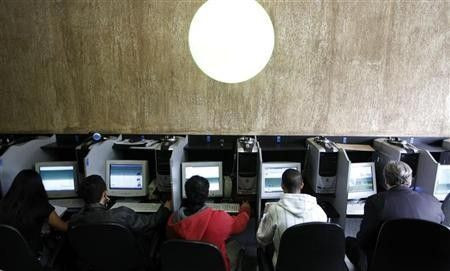CISPA 2013: Google, Apple Top Massive List Of Supporters Favoring The Controversial Cybersecurity Bill

TechNet, the trade association that represents dozens of prominent technology companies, including Google, Apple and Facebook, has come out in support of the controversial Cyber Intelligence Sharing and Protection Act (CISPA) in a formal letter to the U.S. House of Representatives this week.
"TechNet, the bipartisan policy and political network of technology CEOs that promotes the growth of the innovation economy, commends you for your work on cybersecurity and writes to express our support of H.R. 624, the 'Cyber Intelligence Sharing and Protection Act of 2013.'"
First introduced in November 2011, CISPA was designed to allow sharing of Internet traffic data between companies and the government to better detect and protect critical infrastructure against cyberthreats and cyberattacks. The bill, however, has been condemned by Internet privacy and civil liberties advocates -- including a coalition of 40+ organizations that includes the ACLU and Electronic Frontier Foundation -- for its dangerously broad language and lack of limits on how and when the government can monitor Internet browsing information.
TechNet, which is led by several influential tech executives, including Google's Eric Schmidt and Yahoo's Marissa Mayer, doesn't feel the same way about the bill. In the group's formal letter supporting CISPA, TechNet CEO Rey Ramsey lauded the bill for pushing to allow industries and the government to send and receive information about cyberattacks in real-time, and even praised the panel for addressing some of the chief privacy concerns with the bill, though specific privacy issues weren't mentioned.
"We commend the committee for providing liability protections to companies participating in voluntary information-sharing and applaud the committee's efforts to work with a wide range of stakeholders to address issues such as strengthening privacy protections," Ramsey said. "As the legislative process unfolds, we look forward to continuing the dialogue with you and your colleagues on further privacy protections, including discussions on the role of a civilian interface for information sharing."
TechNet boasts more than 70 member companies in its network. Here are some of the most significant groups represented on that list:
- Accel Partners
- Apple
- AT&T
- Broadcom
- Cisco
- Craigslist
- Dell
- eBay
- Elance
- HP
- Intel
- Juniper Networks
- Marvell
- Microsoft
- MIND Research Institute
- Nasdaq
- Oracle
- Pfizer
- Rackspace
- Salesforce
- Stanford University
- Symantec
- T-Mobile
- VeriFone
- Visa
- Yahoo
- Yelp
Obviously, not all technology organizations are in favor of CISPA. Reddit co-founder Alexis Ohanian posted a YouTube video on Wednesday calling for Google, Facebook and Twitter to understand that CISPA would invalidate their current privacy policies with their respective user bases.
"If someone wants private access to our private home or to our mail, we ask them to go get a warrant, right?" Ohanian asks in his video. "CISPA basically says, 'Not necessary. Your digital privacy is irrelevant.'"
Ohanian played a key role in last January's successful Internet blackout in protest of the SOPA and PIPA bills, which convinced principal websites like Wikipedia, Imgur, Wordpress and others to black out their services for a full 24 hours. In his video, he attempts to call Google, Facebook and Twitter to similarly rally the troops and raise awareness at the same time.
"Since we couldn't get in touch with the deciders, maybe you can," Ohanian said. "Sign the petition, get on the social media, because this is what defeated SOPA and PIPA, and this is what will defeat CISPA, and this is what will defeat whatever they try to throw at us. Internet freedom, Internet privacy matters."
On Wednesday, the U.S. House Intelligence Committee passed the amended CISPA bill by a vote of 18 to 2, despite warnings from the White House National Security Council saying the cybersecurity bill hasn't made enough changes to protect civil liberties and privacy, which indicates that President Obama would not likely support the bill in its current form. The Obama administration threatened to veto CISPA last year, saying the bill “lacks sufficient limitations on the sharing of personally identifiable information between private entities” and “treats domestic cybersecurity as an intelligence activity and thus significantly departs from long-standing efforts to treat the Internet and cyberspace as civilian spheres.”
"Cyber-hackers from nation-states like China, Russia and Iran are infiltrating American cybernetworks, stealing billions of dollars a year in intellectual property and undermining the technological innovation at the heart of America's economy," House Intelligence chairman Mike Rogers (R-Mich.), sponsor of CISPA, said after Wednesday's closed-door vote. "This bill takes a solid step toward helping American businesses protect their networks from these cyber looters."
For those who don't want to read the full text of the latest CISPA draft, there are plenty of excellent resources that describe what the bill specifically aims to accomplish, and what the bill lacks in terms of privacy and corporate liability protections. The Electronic Frontier Foundation also has great ways to take action and raise awareness about CISPA.
© Copyright IBTimes 2024. All rights reserved.






















